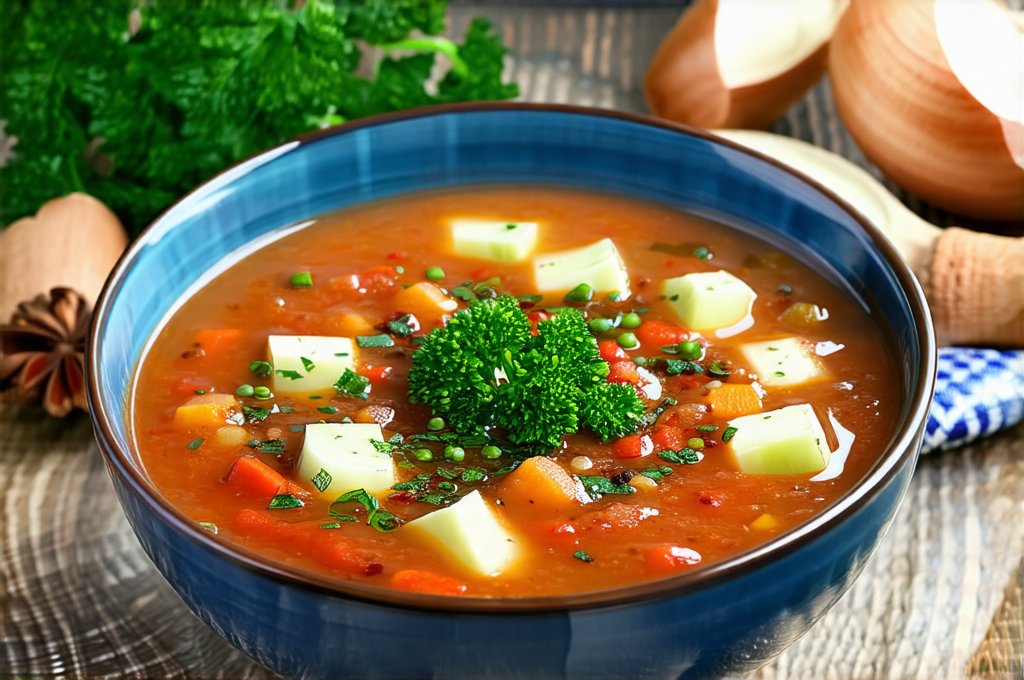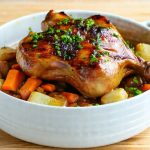Gastroesophageal reflux disease (GERD) and bloating are often unwelcome companions during colder months, frequently exacerbated by dietary choices and changes in routine. Many find themselves craving warm, comforting foods as temperatures drop, but unfortunately, typical comfort fare can be problematic for those managing these conditions. Rich sauces, fried foods, and even certain vegetables can trigger heartburn or increase gas production, leading to discomfort and disrupting daily life. This is where the power of carefully crafted soups comes in – offering both warmth and digestive ease.
The good news is that delicious, satisfying soups can be entirely GERD and bloating-friendly! By focusing on ingredients known to minimize reflux triggers and promote gentle digestion, we can create a culinary experience that nourishes the body without causing distress. This isn’t about deprivation; it’s about making informed choices and embracing flavorful alternatives. The key is prioritizing lean proteins, low-acid vegetables, and easily digestible grains – all simmered in soothing broths. Beyond just avoiding triggers, incorporating ingredients known for their anti-inflammatory properties can further support digestive health and overall well-being during those chilly months. Understanding how cold weather eating habits and heavy foods increase the risk of seasonal indigestion can help you make informed choices during the colder months.
Understanding the Connection: GERD, Bloating & Soup’s Potential
GERD occurs when stomach acid frequently flows back into the esophagus, causing heartburn and potentially damaging the esophageal lining over time. Bloating, on the other hand, often results from excess gas production in the digestive system. While distinct conditions, they can be closely linked – dietary factors that trigger one often exacerbate the other. For example, high-fat foods delay stomach emptying, increasing the risk of reflux and fermentation in the gut, leading to bloating. Similarly, certain vegetables (like broccoli and cabbage) contain compounds that produce gas during digestion, potentially causing discomfort for sensitive individuals.
Soup’s versatility makes it an ideal solution. The liquid nature aids digestion, reducing the burden on the stomach and minimizing acid reflux. Ingredients can be carefully selected to avoid common triggers; think gentle cooking methods like steaming or poaching rather than frying. Furthermore, soups are hydrating – crucial for optimal digestive function. A well-constructed soup isn’t just a meal; it’s a proactive step towards managing these conditions. If you experience excessive gas during cold weather, consider reviewing nutrition tips for managing gas.
The beauty of soup lies in its adaptability. You can easily tailor recipes to your individual tolerances and preferences. Experimenting with different herbs and spices not only enhances flavor but also adds potential health benefits, such as anti-inflammatory or carminative (gas-reducing) properties. It’s about finding a balance between comfort, nutrition, and digestive wellbeing. Understanding how cold weather affects digestive gas and bloating can help you prepare better for these issues.
Building Your Bloating & GERD-Friendly Soup Toolkit
Creating soups that are both delicious and gentle on the gut starts with ingredient selection. Here’s a breakdown of what to embrace and what to consider limiting:
Embrace:
* Lean Proteins: Chicken breast, turkey, fish (salmon, cod), tofu.
* Low-Acid Vegetables: Carrots, potatoes, sweet potatoes, zucchini, green beans, spinach, cauliflower (in moderation).
* Easily Digestible Grains: Rice (brown or white), quinoa, oats.
* Soothing Broths: Homemade vegetable broth, low-sodium chicken broth.
* Flavorful Herbs & Spices: Ginger, turmeric, chamomile, parsley, thyme, oregano.
Consider Limiting/Avoiding:
* High-Fat Foods: Creamy soups, fried ingredients, excessive oil.
* Acidic Vegetables: Tomatoes, citrus fruits, onions, garlic (use sparingly).
* Cruciferous Vegetables in Excess: Broccoli, cabbage, Brussels sprouts (small amounts may be tolerated by some).
* Spicy Foods: Chili peppers, hot sauce.
* Carbonated Beverages: Can contribute to bloating.
Remember that tolerance varies greatly from person to person. Pay attention to your body’s signals and adjust recipes accordingly. Keeping a food diary can also help identify specific triggers. It’s about finding what works for you.
Soup-Making Essentials: Techniques for Digestive Ease
1. Gentle Cooking Methods: Steaming, poaching, or slow simmering are preferred over frying or roasting. These methods preserve nutrients and minimize the creation of potentially irritating compounds.
2. Portion Control: Large meals can overwhelm the digestive system. Opt for smaller portions more frequently throughout the day.
3. Thorough Chewing: This aids digestion by breaking down food into smaller particles, reducing the workload on your stomach.
Flavor Without The Flare: Spice & Herb Strategies
Many individuals with GERD or bloating worry about compromising flavor when avoiding trigger foods. However, a wide array of herbs and spices can add depth and complexity without exacerbating symptoms. Ginger, for example, is renowned for its anti-inflammatory properties and ability to soothe the digestive system. Turmeric offers similar benefits, while chamomile has calming effects that can reduce stress – a known trigger for both GERD and bloating.
Using herbs thoughtfully isn’t just about avoiding triggers; it’s about enhancing flavor in creative ways. Consider adding fresh parsley or thyme to your soups for a bright, aromatic touch. Experiment with different spice blends (avoiding chili peppers!) to discover new combinations that you enjoy. Remember, food should be both nourishing and enjoyable. If experiencing discomfort, understanding GERD and sudden urge to stretch or gasp for air can help you address the symptoms.
Recipe Inspiration: Creamy Carrot & Ginger Soup
This recipe is designed specifically with GERD and bloating in mind, utilizing gentle ingredients and soothing flavors.
Ingredients:
– 1 tbsp olive oil
– 1 onion, finely chopped (use sparingly if sensitive)
– 2 lbs carrots, peeled and chopped
– 4 cups low-sodium vegetable broth
– 1 inch ginger, grated
– 1/2 tsp turmeric powder
– Salt & pepper to taste
– Optional: a splash of unsweetened almond milk for extra creaminess
Instructions:
1. Heat olive oil in a large pot over medium heat. Sauté onion (if using) until softened.
2. Add carrots, vegetable broth, ginger, and turmeric. Bring to a boil, then reduce heat and simmer for 20-25 minutes, or until carrots are tender.
3. Carefully blend the soup with an immersion blender (or in batches in a regular blender) until smooth.
4. Season with salt and pepper to taste. Add almond milk if desired. Serve warm.
If you experience irritation while breathing cold air, it’s important to address potential triggers. This article provides a foundation for enjoying comforting soups without compromising digestive health. Remember, listening to your body and adapting recipes to your individual needs is paramount. By embracing mindful ingredient selection and gentle cooking methods, you can create delicious meals that nourish both the body and the soul during colder weather—and beyond. In some cases, GERD and cold sweats at night could be a red flag that requires medical attention.


















